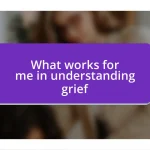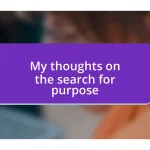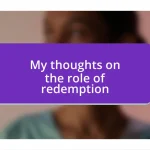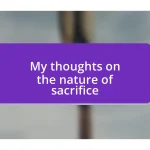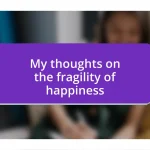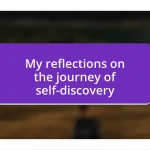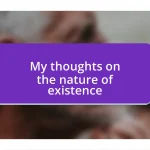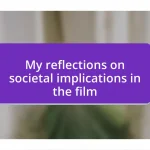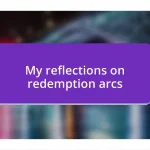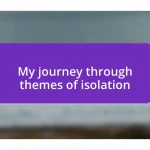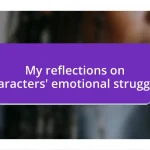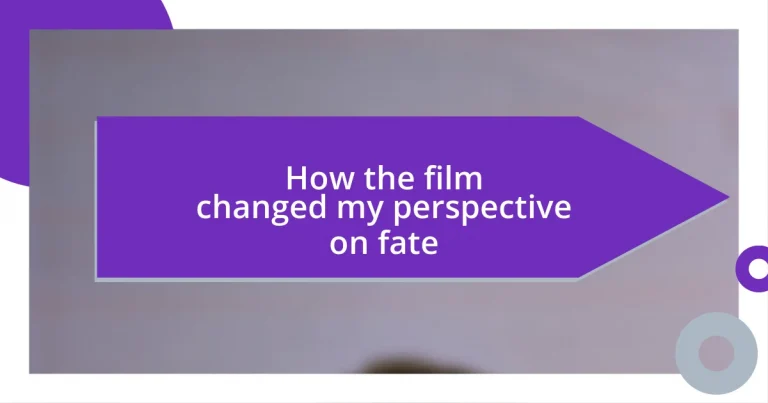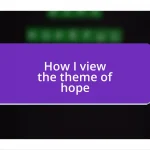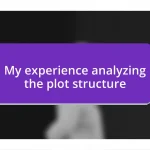Key takeaways:
- Films significantly influence personal perceptions of fate and free will, prompting viewers to reflect on their own life choices and destiny.
- Specific films like “The Adjustment Bureau,” “Sliding Doors,” and “Final Destination” illustrate the interplay between choice and fate, encouraging deeper contemplation of life’s pathways.
- Lessons from films can lead to transformative self-awareness, inspiring individuals to embrace risks, recognize the impact of small decisions, and accept the uncontrollable aspects of life.
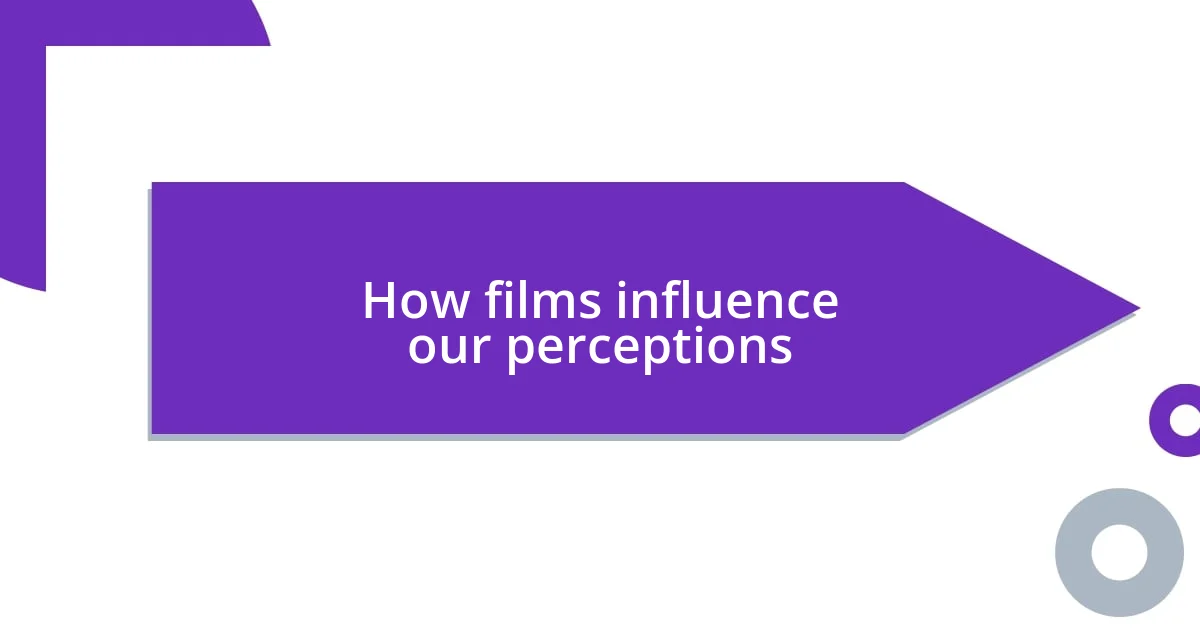
How films influence our perceptions
Films have an incredible way of shaping how we view our world, turning abstract concepts into something tangible and relatable. I remember watching a heartbreaking scene where a character grapples with loss, and it struck a chord deep within me. Isn’t it fascinating how a few frames can prompt us to reflect on our own experiences of grief and relationships?
When I see characters facing fate’s hand, it challenges me to consider my own beliefs about destiny. How often have I felt like a passive observer in my life, waiting for things to unfold? This perspective shift can be transformative, as I realize I have the power to steer my journey rather than just accept what comes.
Every film I’ve watched stays with me, often echoing in my thoughts long after the credits roll. During a quiet moment, I found myself pondering the intricate dance between free will and fate that a favorite movie expertly depicted. It’s almost as if films create a mirror, reflecting our inner struggles and thoughts, pushing us to confront ourselves in ways we might not otherwise.
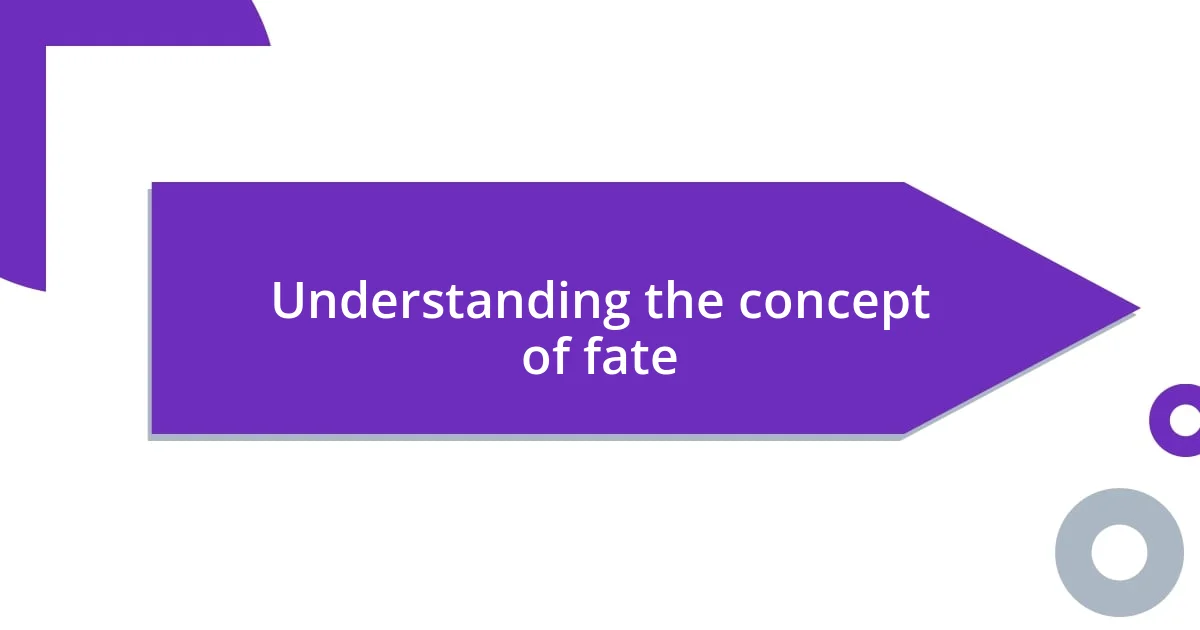
Understanding the concept of fate
Understanding the concept of fate can be quite a personal journey. I’ve often found myself pondering the idea that our lives are preordained, influenced by an unseen force. One night, after watching a film that profoundly examined fate versus free will, I lay awake in bed, reflecting on my choices and the paths I’ve taken. Was it my decision to pursue a particular career, or was that fate guiding me all along? It’s this ambiguity that I find both thrilling and unnerving.
- Fate suggests that events are predetermined, influenced by forces beyond our control.
- It raises the question of free will: are we the authors of our stories?
- Many cultures have their own narratives about fate, often intertwined with spiritual beliefs.
- Films often depict characters grappling with fate, showcasing their struggles and the impact of choice.
- Personal experiences can shape our understanding of fate, leading to varied interpretations.
Every time I dive into a story that explores fate, I can’t help but feel a mix of excitement and trepidation. It serves as a reminder that while I navigate my life, there’s a complex interplay between the threads of destiny and the choices I make. The films too often mirror this journey, illuminating the intricate ties between our experiences and the paths we tread.
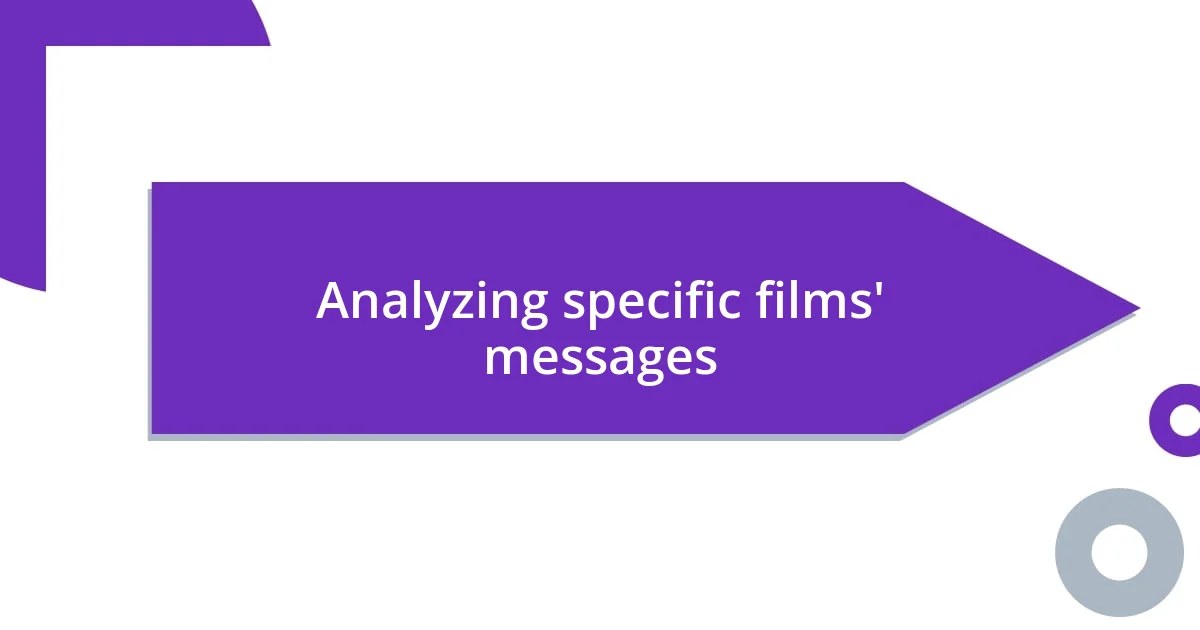
Analyzing specific films’ messages
When I think about how films convey messages about fate, one movie that stands out for me is “The Adjustment Bureau.” In it, the protagonists face the idea that unseen forces manipulate their lives, much like the struggle I often feel when trying to make significant life choices. It left me pondering—do we truly have control over our destinies, or are we just playing our parts in a larger script?
Another film that resonated deeply with me is “Sliding Doors,” which illustrates two diverging paths based on a single choice. There’s a scene where the main character misses a train, and it spirals into two different lives that she could lead. Watching it made me reflect on a pivotal decision I once had to make. It struck me that even small choices can have immense implications, shaping our fate in ways we may not initially comprehend.
Lastly, “Final Destination” caught my attention with its chilling portrayal of fate as a relentless force. I remember feeling a mix of anxiety and curiosity during the film, wondering how characters attempted to dodge their preordained ends. This entertainment juxtaposed with existential thoughts challenged me to confront my own fears surrounding destiny and mortality. What if, like the characters, we can never fully escape destiny’s grasp?
| Film Title | Key Message about Fate |
|---|---|
| The Adjustment Bureau | Unseen forces shape our lives, questioning the extent of free will. |
| Sliding Doors | Small choices lead to divergent life paths, highlighting the impact of decisions. |
| Final Destination | Fate is inescapable, provoking anxiety about our mortality and the future. |
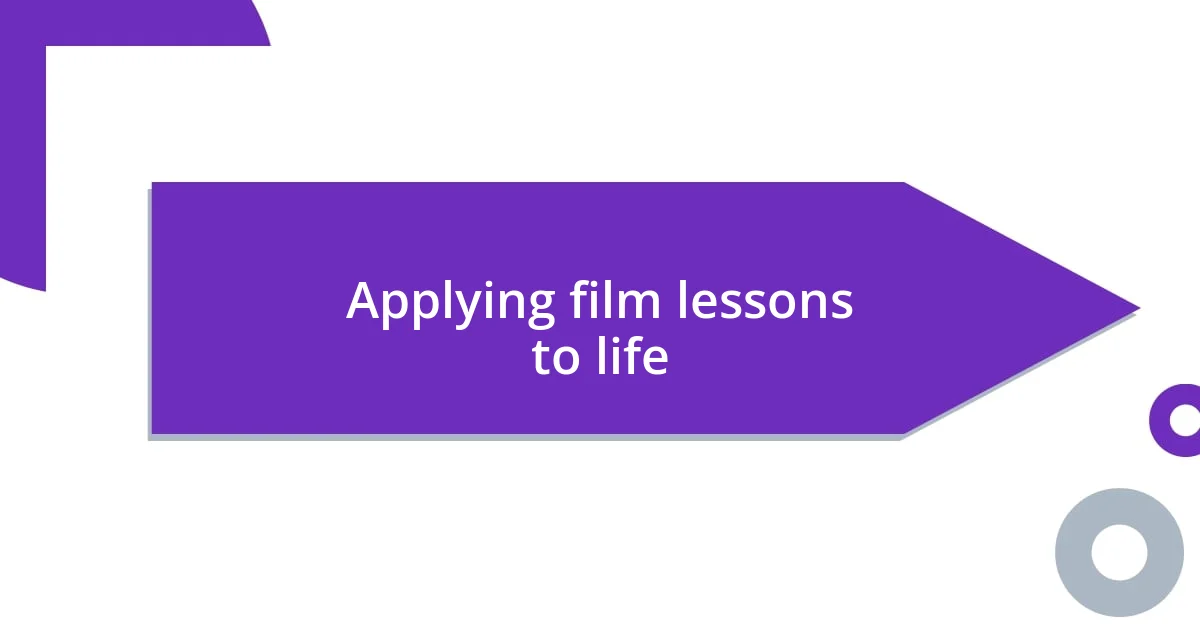
Applying film lessons to life
Reflecting on the lessons learned from films, I realized how easily they can reshape our understanding of fate. I remember after watching “The Adjustment Bureau,” I felt an overwhelming urge to take a leap of faith in my career. It made me wonder—if my choices are influenced by factors beyond my understanding, could I risk more often, trusting that I’m on a path meant for me?
After viewing “Sliding Doors,” I had an enlightening moment. I found myself sitting at a café, mulling over a decision that felt trivial but turned out to be significant. It struck me then that every small choice can unravel into a myriad of possible futures. This insight pushed me to approach life with a more mindful attitude—seeing each decision as a thread in my personal tapestry of fate.
Interestingly, “Final Destination” forced me to confront my fears about control and destiny. I felt a rush of anxiety while watching, knowing that those characters were racing against an unavoidable end. That night, I reflected on my own vulnerabilities and how much I resist them. I found solace in accepting that some things are beyond my grasp, which in turn liberated me to make choices that truly resonate with my desires. It’s fascinating how film can act as a mirror, reflecting our internal struggles and guiding us toward deeper self-awareness.
